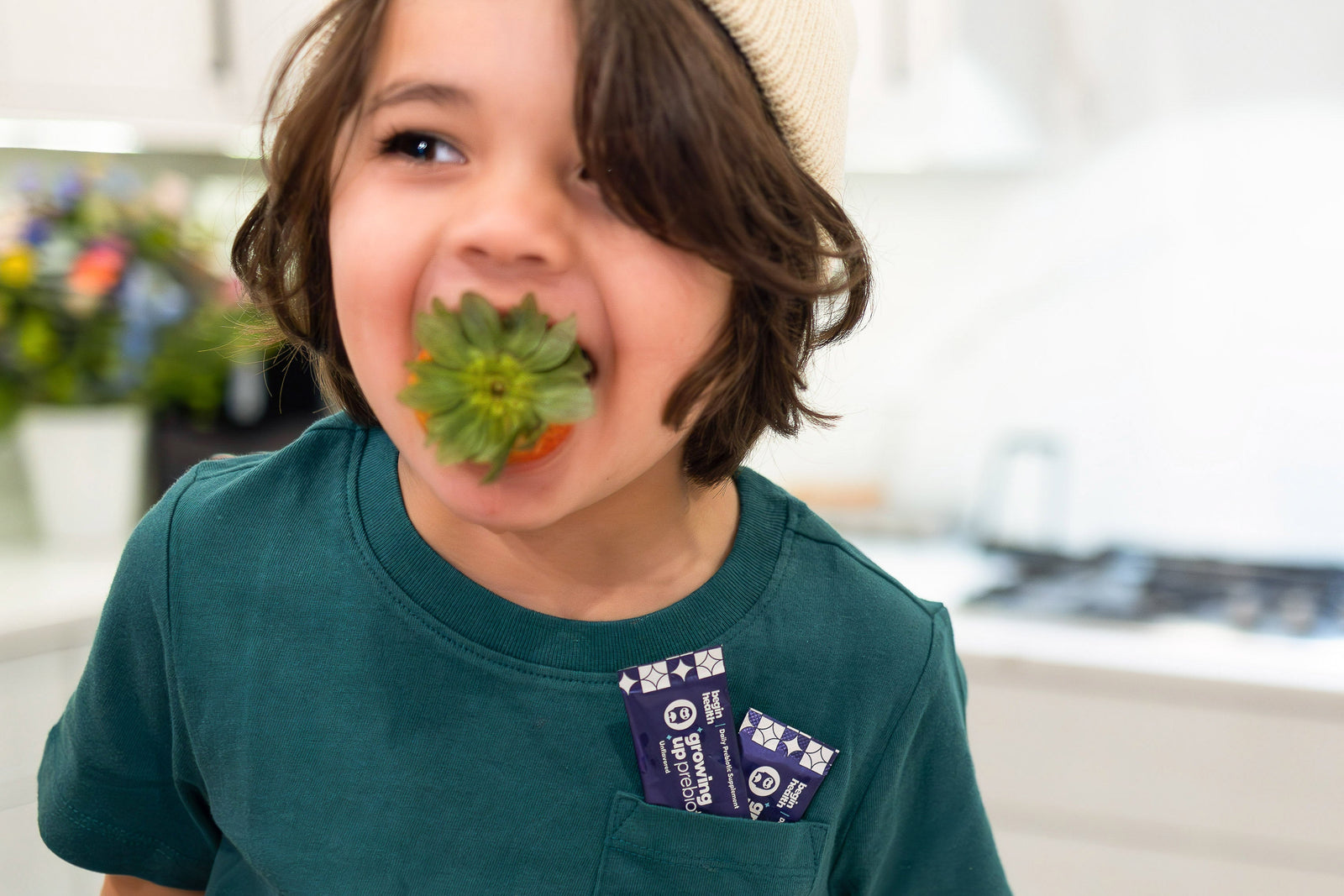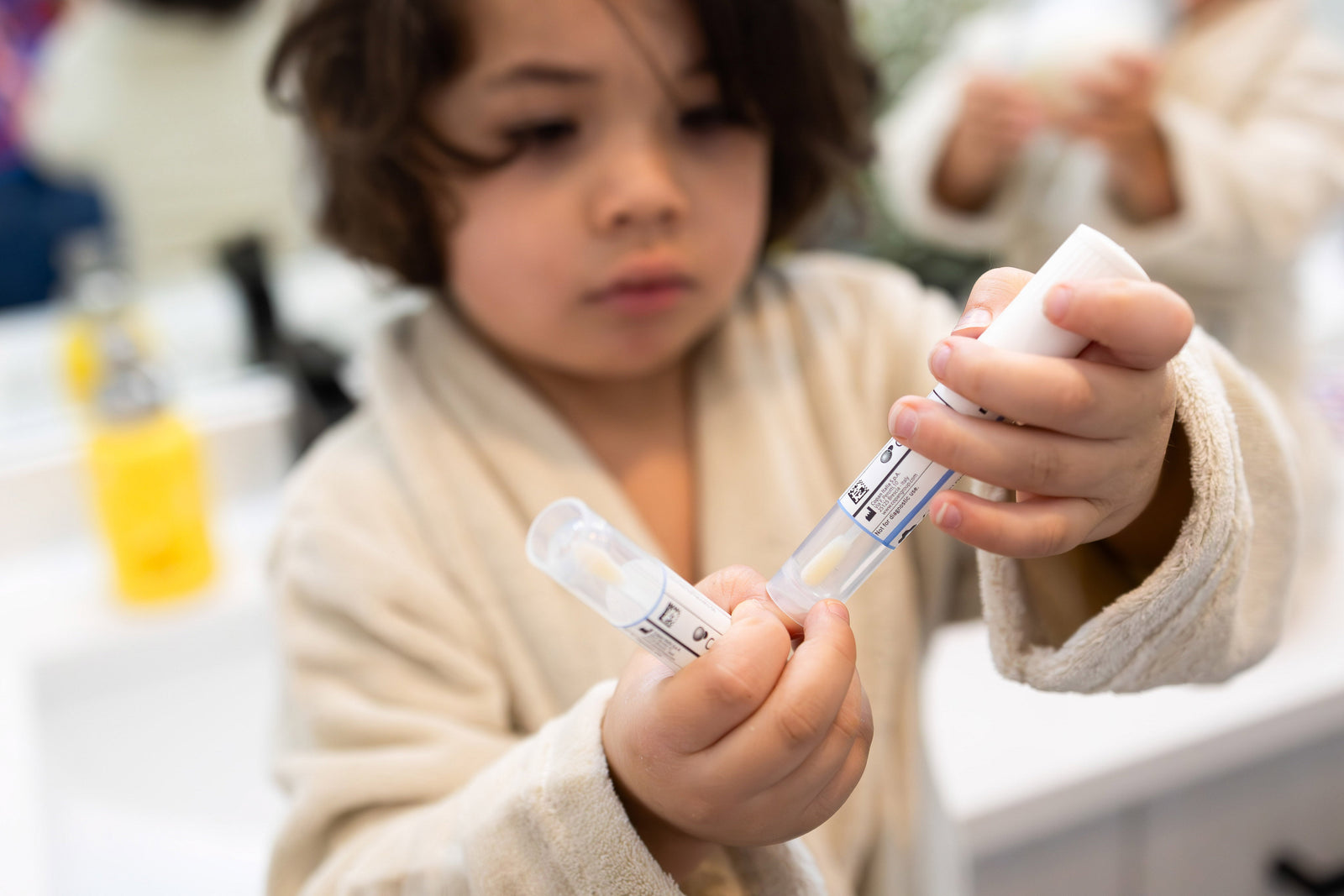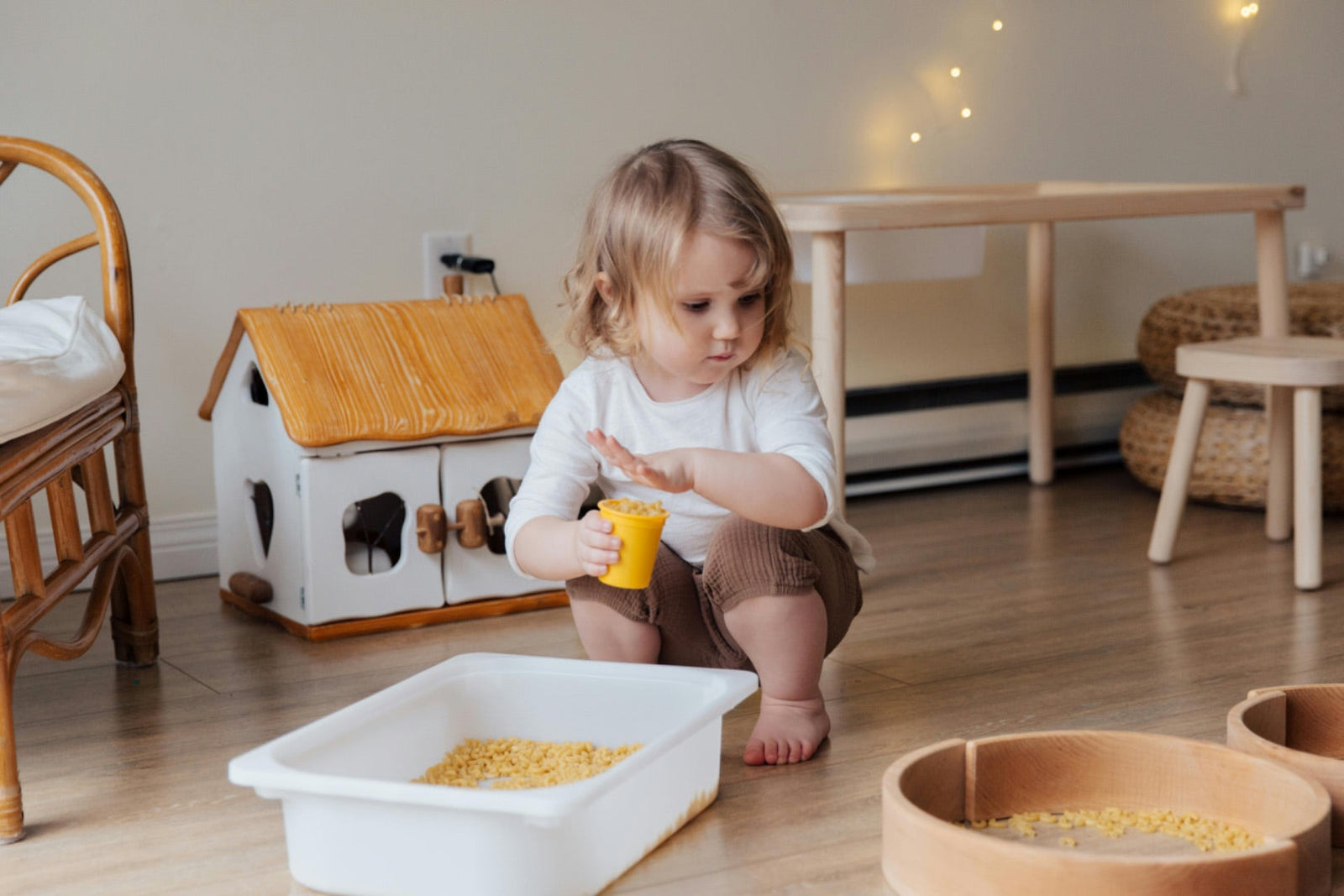Your Cart is Empty
Continue shoppingHow to Help a Constipated Toddler While Potty Training
Medically reviewed by Dr. Meredith Stremel | Published December 09, 2024
share this article

Struggling with potty learning? Constipation might be the culprit. Constipation is something that many children go through, and it will complicate the potty learning process. In fact, it may make it impossible! Since potty training can be overwhelming for both children and their parents, it is important to take time to resolve constipation and help your little one feel comfortable and confident sitting on the potty before diving into potty training.
How do I know if my kid is constipated?
When most people think of constipation, they often associate it with infrequent bowel movements or hard stools—and that is correct! However, constipation can also occur even if your little one is having daily bowel movements. This is especially common in toddlers who struggle with the toilet training process.
To assess constipation accurately, it’s essential to consider both the frequency and the consistency of bowel movements. The ideal goal is one soft, complete bowel movement per day, typically resembling a 3 or 4 on the Pediatric Bristol Stool Chart.
In some cases, children may have more than one bowel movement daily due to incomplete evacuation, where they stop before fully emptying their bowels. This is where confusion can arise for caregivers, as frequent bowel movements may lead them to believe their kid is not constipated, when in fact they are. Keeping kids regular with soft, complete bowel movements is key to supporting a smooth potty training process and minimizing challenges along the way.
Additional Signs of Constipation:
- Fewer than three bowel movements per week
- Very small or very large stools
- Passing hard stools
- Complaints of stomach pain
- Behavioral changes, such as distress or hesitation to use the toilet, often stemming from a history of painful bowel movements
Begin Health Expert Tip
Can medical conditions contribute to constipation symptoms? Click here to learn more about these 3 Medical Conditions that Contribute to Constipation in Kids.
What can I do to help resolve constipation?
As a parent, it can be stressful and concerning to see your kid struggle with bowel movements or experience constipation. Monitoring your little one’s bowel habits both before and during potty learning is essential for ensuring a smooth and comfortable process. If you suspect your kiddos are struggling with constipation, it’s always a good idea to consult with their pediatrician. In addition, there are simple strategies you can implement at home to encourage regular bowel movements and support your kid’s overall digestive health:
- Increase fiber intake: Fiber-rich foods, such as fruits (pears, apples with skin, prunes), vegetables (broccoli, carrots), and whole grains (oatmeal, whole grain bread), help keep stool soft and promote regularity. Children need 19g/day (ages 1-3) or 25g/day (ages 4-6), per American Heart Association (AHA) and American Academy of Pediatrics (AAP) guidelines. Growing Up Prebiotics is a great option as well, it offers 3g of fiber per serving!
- Hydration: Keeping your kid well-hydrated is key to preventing hard stools and supporting a healthy digestive system. The AAP recommends that children aged 2-5 consume approximately 40 ounces of water daily. Encouraging them to drink even a little more can make a big difference in promoting regular bowel movements.
- Prebiotics and probiotics: Adding prebiotic and probiotic-rich foods or supplements can support a healthy gut microbiome, which plays a key role in digestion and bowel regularity.
- Physical activity: Regular movement and play stimulate the digestive system and encourage healthy bowel habits.
Begin Health Expert Tip
Constipation baby? Read more about how the transition from milk to solid foods can be a contributing factor to constipation in your little one.
What if my kid becomes constipated during the potty training process?
For some kids, constipation only becomes an issue during the transition to potty learning, roughly 25% of kids develop stool toileting refusal, often associated with constipation, during toilet training.
Begin Health Expert Tip
Shifting from the familiarity of a diaper to using the toilet introduces new sensations and expectations, which can sometimes make kids hesitant or uncomfortable, especially when it comes to pooping on the potty. This hesitation can lead to withholding behaviors, which not only complicates bowel movements but can also delay progress in potty learning.
To help prevent or address constipation during this process, consider these key strategies:
- Ensure proper positioning: Using a stool to elevate your kid’s knees above their hips mimics a natural squatting position, which is optimal for passing bowel movements. This positioning helps relax the pelvic floor muscles and reduces strain.
- Create a secure environment: A seat insert can help your kid feel stable and secure on the potty, minimizing fears of falling in or discomfort with the new setup.
- Use praise and reinforcement: Celebrate efforts and successes with specific praise like “Great job sitting on the potty!” and introduce a positive reinforcement system. Rewards such as stickers or small privileges can be a great motivator to ease the transition.
Additionally, supporting their digestive health is critical, like discussed above and these strategies can make a significant difference:
- Incorporate prebiotics and probiotics: Prebiotics such as those found in Begin Health's Daily Growing Up Prebiotics can help support with softer stooling. These help maintain a healthy gut microbiome, which supports digestion and regular bowel movements.
- Increase hydration: Adequate water intake prevents hard stools and supports overall bowel health.
- Boost fiber intake: Include fiber-rich foods like fruits, vegetables, and whole grains to promote stool bulk and ease passage.
- Encourage physical movement: Regular activity stimulates the digestive system and helps maintain bowel regularity.
Expert Key Takeaways
Remember, these approaches work best when tailored to your little one’s specific needs. If constipation persists, it’s always advisable to consult with a pediatrician for additional support and guidance.

Author
Dr. Meredith Stremel
Trending

Inc. Names Begin Health to Its 2025 List of the Fastest-Growing Private Companies in the Midwest
read now
Oxalates and Kids' Digestion: How High-Oxalate Foods Contribute to Constipation and Gut Discomfort
read now
5 Signs Your Toddler Needs a Poop Test
read now






